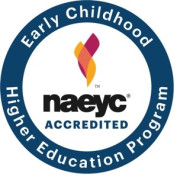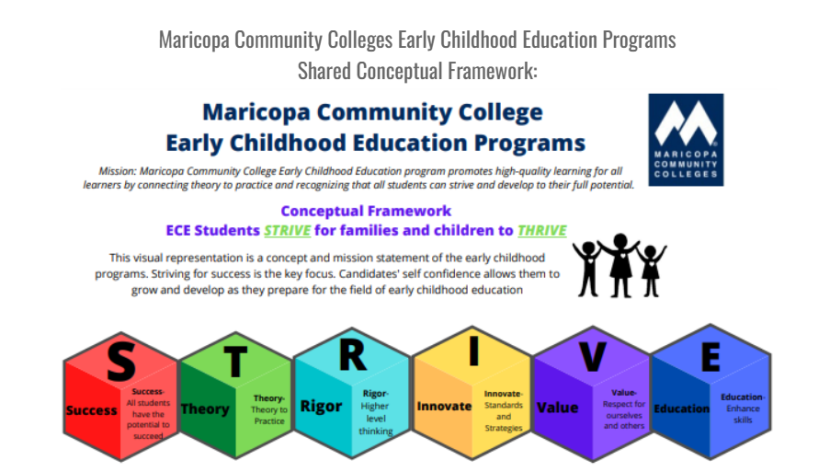The Early Childhood Education Associate of Applied Science (AAS) Degree at Mesa Community College is accredited by the Commission on the Accreditation of Early Childhood Higher Education Programs of the National Association for the Education of Young Children (NAEYC).

Current Accreditation Period: July 2022 - December 2024
Link to Certificate of Accreditation
NAEYC's higher education accreditation system accredits programs preparing individuals for beginning career roles as early childhood educators. NAEYC awards accreditation to programs that demonstrate evidence of excellence by meeting the NAEYC Professional Standards and Competencies for Early Childhood Educators.
Striving for success is something that has been a key focus for the overall program. Candidates who have confidence in themselves allow one to grow and develop as they prepare themselves for the field of early childhood education. Candidates are encouraged to strive to reach their full potential in preparation for quality early childhood education programs and settings.
This visual representation of the concept and mission statement was created after seeking input from students, faculty, and stakeholders of the early childhood programs. Seeking early childhood program accreditation through NAEYC we have a collaborative model with Chandler-Gilbert Community College, Glendale Community College, Mesa Community College, and Rio Salado Community College. Our collaboration includes the shared conceptual framework model.
The Early Childhood Program at MCC strives to meet the NAEYC standards through this conceptual framework model as described below with candidates demonstrating the application of theoretical knowledge in real-world settings. Some of the experiences include observations & internships in diverse classroom settings, college community events, and diverse student peers in the college classroom.
Standard 1 Promoting Child Development and Learning: By designing developmentally, culturally, and linguistically appropriate learning experiences that promote each child's growth and development focusing on the domains of development.
Standard 2 Building Family and Community Relationships: By valuing and experiencing culturally responsive relationships with peers, professionals, young children, families and community members .
Standard 3 Observing, Documenting, and Assessing to Support Young Children and Families: Candidates partner with families to support individual needs of their children through observation, documentation and development of appropriate goals and activities. They continue to work closely with families while maintaining open communication with all families.
Standard 4 Using Developmentally Effective Approaches: Using innovative practices candidates are encouraged to implement developmentally, culturally, and linguistically appropriate learning experiences, incorporating state standards as they relate to curriculum and instruction, through application of theoretical knowledge in real world settings.
Standard 5 Using Content Knowledge to Build Meaningful Curriculum: Through rigorous coursework and learning opportunities candidates design, implement, and evaluate meaningful and challenging curriculum including resources in academic disciplines using essential concepts and appropriate technology tools.
Standard 6 Becoming a Professional: Candidates construct a portfolio which demonstrates professional development over time in a variety of dimensions through knowledgeable, reflective and critical evidence of learning. This evidence of learning illustrates the candidate's successful transition into the early childhood profession.
Access MCC's Early Childhood student outcomes data here:
Student Learning Outcomes Data 2021-2024


